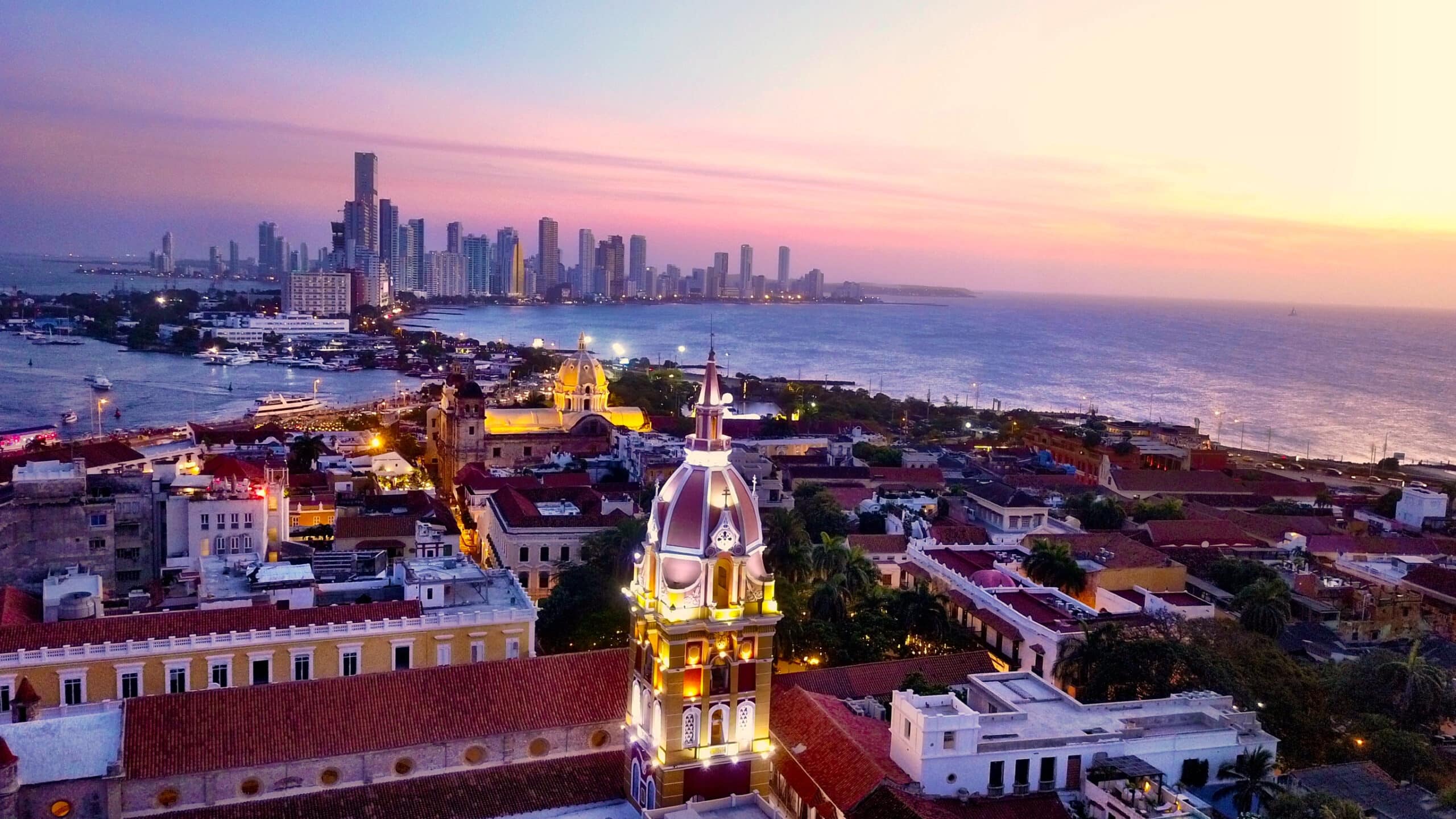Idioms are a huge part of any language and culture, and Colombia is no exception. Today you’ll learn 15 important Colombian Spanish idioms that its people use on an everyday basis.
Maybe you’re planning to travel there for vacation, moving for work, or are just interested in Colombian culture. Whatever the reason, you better learn some Colombian idioms.
Just the Spanish you learned at school won’t be enough to understand everything. Maybe you’ll be able to find your way around there, but if you want to engage in a fluent conversation, you must speak their slang. And in the process, you’ll impress Colombians.
15 Colombian Spanish Idioms
1. La vuelta se cayó
This literally means “the turn fell”. But like any idiom, it’s used metaphorically, and it means that something didn’t turn out as you’d planned.
2. Echar carreta
It means to talk for a long time, letting the conversation flow. You can talk about any topic or many topics, not about something too important.
So, if someone tells you “vamos a echar carreta”, it means they want to talk with you informally, basically they want to hang out.
Beware, because it can also mean that someone is saying lies. For example: if a coworker is telling a bunch of crazy stories, you can say: “Constantemente está echando carreta” (he/she is constantly lying)
3. Mamar gallo
This means “to bother”. Maybe you’re bothering someone as a joke, by mocking them, or maybe you’re more serious and you’re tricking/deceiving them. Either way you’re “mamando gallo”.
4. Poner los cachos
To cheat on.
5. No des papaya
Literally it says: “don’t give papaya”. “Dar papaya” (to give papaya) means that you expose yourself to danger, to someone robbing you or doing harm to you for being careless.
So, when someone tells you “no des papaya”, they’re telling you not to be naïve or careless, so nobody hurts you.
For example: Let’s say you withdraw money from the bank and you start walking down the street holding it in your hands. Your friends might tell you: “guarda ese dinero, no des papaya” (keep that money secure, don’t expose yourself to harm”.
6. Hágame un cruce
Literally it says: “do me a crossing”, which doesn’t make a lot of sense. But it’s actually used to ask for a favor.
For example: “Por favor, vecino, hágame el cruce de prestarme su teléfono” (please, neighbor, do me the favor of lending me your phone).
To ask for a favor, you can also say: “hágame un catorce” (do me a fourteen). As well as “hágame un dos” (do me a two), or “hágame un tres” (do me a three).
7. Estar jincho
This means “to be drunk”.
8. Enguayabado
This means “to be hungover”. So, it’s the perfect word to describe yourself after being “jincho”.
For example: “Ayer me puse tan jincho que hoy estoy muy enguayabado” (yesterday I got so drunk that today I am very hungover).
9. Estar en la olla
Literally this means “to be in the pot”. But it’s used to say that you’re in the worst situation possible about something, especially used in terms of economy.
10. Puyar el burro
It means “to hurry up”. For example: Maybe you’re taking your daughter to school but she’s still getting ready. Then, you can tell her: “Puye el burro que no vamos a llegar”(hurry up or we won’t make it).
11. Tengo un filo que si me agacho me corto
Literally this means “I have an edge that if I bend, I’ll cut myself”. This long phrase it’s simply used to say that you’re starving. It’s as if you’re saying that if you bend, you’ll cut yourself with your hunger.
12. Buscarle la comba al palo
It means to find the best way to solve a problem or do something. You can also say “encontrarle la comba al palo”. The only difference is the verb: “buscar” means “to look for”, and “encontrar” means “to find”.
13. Ser sapo
“Literally this means “to be a toad”. But it’s used to say someone is a snitch. For example: Let’s say your little brother tells your mom that you skipped school. You would tell him: “no sea tan sapo” (don’t be such a snitch).
14. Sacar la piedra
It’s used to say you made or are making someone furious.
For example: Maybe a coworker is bothering you. Then, you can tell him/her: “Vete ya que me estás sacando la piedra” (go away now, you’re making me furious).
15. Parar bolas
This means “to pay attention”. For example: “Nadie nos paró bola durante la exposición” (nobody paid attention to us during the presentation).
How to Put Your Colombian Spanish Idioms into Practice
The best way to truly strengthen your Colombian idioms knowledge is by putting them into practice. This way you’ll truly know how to use them in a real situation with an actual native speaker.
One way to do that is by talking with your Colombian neighbors or friends, if you know some. Most likely, they’ll love to help you out, and won’t judge you for your mistakes.
If they’re close friends, then you might feel more comfortable with them and they’ll probably make you have tons of fun practicing.
If you don’t know any Colombian, you could get into a language exchange website; there are some for free. The point of these websites is to talk with a native speaker of your target language.
You’ll speak around half an hour in your target language, which would be the other person’s mother tongue. Then the other person speaks in your native language, which would be their target language. So, you both help each other learn and improve.
But if you still don’t feel very confident with Spanish or your newly acquired idioms from Colombia, practice with a tutor. Taking classes can be fun! And having a teacher to guide you could be the best option to increase your confidence, and learn even more.
At TruFluency we have native teachers that will help you reach your language goals. Our lessons are based on our Bellieu Method, made for you to reach fluency.
So, you will not only learn vocabulary, writing, grammar, and listening, but will become a pro at speaking. Soon, you’ll be having full conversations with true Colombians and Spanish speakers in general.
Start now! Or try our trial classes – 2 hours for only $49!





